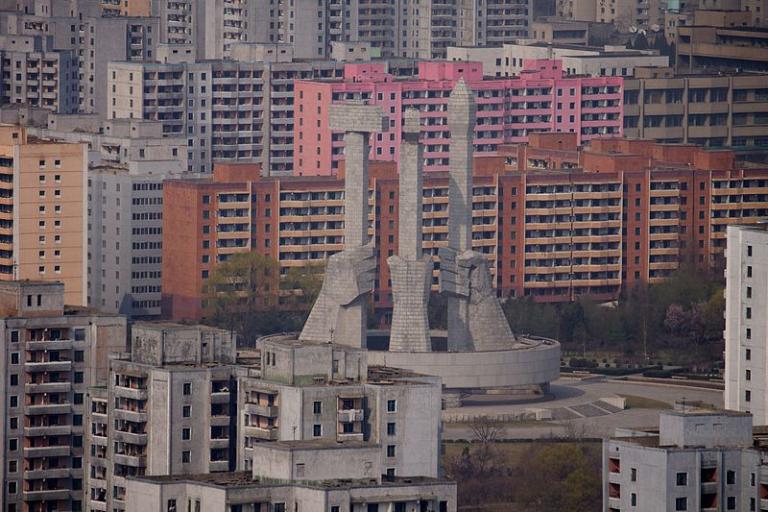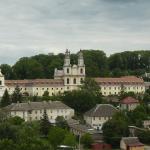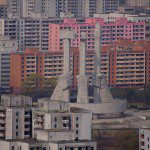
“Ask a North Korean” refers to two things: first, a feature at nknews.org, and second, and more relevant for our purposes, a recent book I’ve been reading, in which, in a question and answer format, defectors share their experiences of life in North Korea with readers.
This is not the first book that I’ve read about life in North Korea. One of these I wrote about a couple years ago; others were from my pre-blogging days or I simply hadn’t shared with readers. But this one is different, very much so, in fact.
We all know about the famine of the 1990s. And we know that the North Koreans are taught to worship the Kims as almost godlike, with propaganda that tells them that, however poor they think they are, the Americans are in far more dire straights.
But that famine did end, and the country changed considerably. A form of capitalism has now emerged in the country; rather than the Potemkin department stores described in past accounts of “tourists”, there are now thriving markets with goods made in-country and imported from China. Workers may nominally be employed by a state employer, but their actual income is earned outside the formal economy. One interviewee reported that there was a great transformation as a result of the famine simply because those who followed the rules were the ones who died.
What’s more, despite the constant threat of informers and deportation to labor camps, there is a thriving trade in DVDs and thumb drives of South Korean television shows which mean that North Koreans are no longer trapped in the Kims’ fantasy world in which it is North Korea which is prosperous, and everywhere else is poor. They know that South Korea is far wealthier than they are. Plus, consumer goods from China are prized, and those from South Korea, even more so.
And finally, these defectors, who, to be sure, are not necessarily representative of the North Korean people, do believe that in the reasonably medium-term future, there will be a peaceful reunification. And, when asked about the transition difficulties, they voiced a conviction that the training-wheels of the current markets in North Korea meant that, unlike predictions that the North Koreans would be nothing more than children dependent on South Korea for all their needs, these defectors believed that their integration would be far more manageable than is generally said to be the case.
So that’s pretty much all I know, and it’s entirely possible that this book is too sunny in its assessments. But it is, in any case, significantly more than I knew before I picked up this book.
Pyongyang; https://commons.wikimedia.org/wiki/File%3APyongyang%2C_North_Korea%2C_Monument_to_the_Founding_of_the_Worker’s_Party_01.jpg; By Joseph Ferris III (Flickr: Pyongyang, North Korea) [CC BY 2.0 (http://creativecommons.org/licenses/by/2.0)], via Wikimedia Commons












